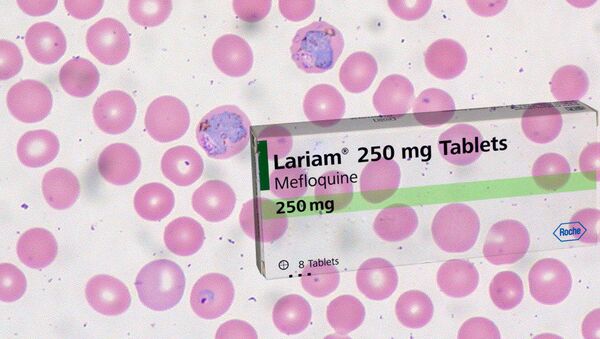The report, conducted by the Commons Defense Committee, said Lariam, also known as Mefloquine, should only be used as a "last resort" in rare circumstances when other anti-malaria drugs cannot be given to certain individuals.
Dr Julian Lewis MP, Chairman of Defence Select Cttee, says "MoD have DEFINITELY failed in duty of care" #lariam @mefloq_vets_hq
— UKMefloquineVets (@mefloq_vets_UK) May 24, 2016
In a stinging criticism of the MoD's long-standing use of the drug, the committee said Britain's military had got the "balance wrong" when taking into account efforts to inoculate servicemen and women against malaria, against the overall health and well-being of armed forces personnel.
"The Ministry of Defense has a duty of care to protect military personnel on operations overseas. It includes ensuring that they are adequately inoculated against disease. This will never be without the risk of detrimental side-effects, and we understand that the MoD must balance those risks against the health of our Armed Forces. However, in the case of malaria, we conclude that the MoD's current policy has got that balance wrong," the report stated.
Anti-malarial Lariam should be last resort only for UK troops, says defence committee. Good! I rarely prescribe it due to side effects.
— Dr Christian Jessen (@DoctorChristian) May 24, 2016
However, perhaps more damaging was the conclusion that officials "ignored" concerns raised by the drug's manufacturer, Roche, about the harmful side effects of Lariam.
"Lariam is a drug whose own manufacturers have laid down stringent conditions which must be met if it is to be prescribed safely. We see no reason to disbelieve the very strong anecdotal evidence that such conditions have been ignored in dispensing it to large numbers of troops about to be deployed. Indeed, it is hard to see how they could ever be met except when the numbers to be individually assessed are few and far between."
Continued Lariam Use 'Puzzling'
Responding to the Defense Committee findings, Sanjeev Krishna, professor of molecular parasitology and medicine at St George's University in London, told Sputnik he was puzzled as to why the MoD continued using Lariam, given the concerns about the drug.
"There were plenty of warning signs that there were potential problems and there were alternative drugs that could be used. So I'm puzzled that a) we needed a Defense Committee investigation into this subject and b) that we had to wait this long before it was obvious that alternatives should have been used," Professor Krishna told Sputnik.
"What I hope is that they [the MoD] acknowledge the problems that this drug can cause and that they don't make it a long process to deal with any of these issues that have arisen."
Professor Krishna said there was no evidence to suggest Lariam was more effective than alternative antimalarial drugs.
"It [Lariam] is clearly associated with a higher frequency of adverse events or side effects. It's not more effective. The only thing we can say, compared to other two common alternatives, is that you can take it once a week. The other drugs you need to take once a day."
Legal Action Looming
The findings could pave the way for legal action against the MoD, with close to 500 former service personnel, who suffered health and psychiatric issues after taking the drug, contacting law firms.
Many who took Lariam experienced a series of dangerous side effects such as hallucinations, depression, sleep deprivation and anxiety.
#DefenceCommittee publishes report on Military Of Defence’s use of #Lariam on veterans https://t.co/FSQ9wZ7mGD pic.twitter.com/giQAQIu6iq
— Irwin Mitchell (@irwinmitchell) May 24, 2016
Along with criticizing the MoD for allocating Lariam to service personnel, the Commons Defense Committee scalded military officials for their lack of help and assistance to those affected by the drug.
Julian Lewis, chairman of the defense committee, said:
"It seems quite clear that not only is the MoD unable to follow the manufacturer's guidelines for prescribing the drug in all instances, but a number of troops discard their Lariam rather than risk its potentially dangerous side-effects."
17,368 service personnel were given Lariam at least once between 2007 and 2015, according to Tuesday’s report.


